Contact us
-
1
-
2
-
3
-
4
-
5
-
6
It will take ~10 minutes to work through Section One
Alcohol Misuse: What is it?
Drinking alcohol to unwind, relax, socialise and celebrate is fairly typical in our society. Problems occur when our reationship with alcohol changes.
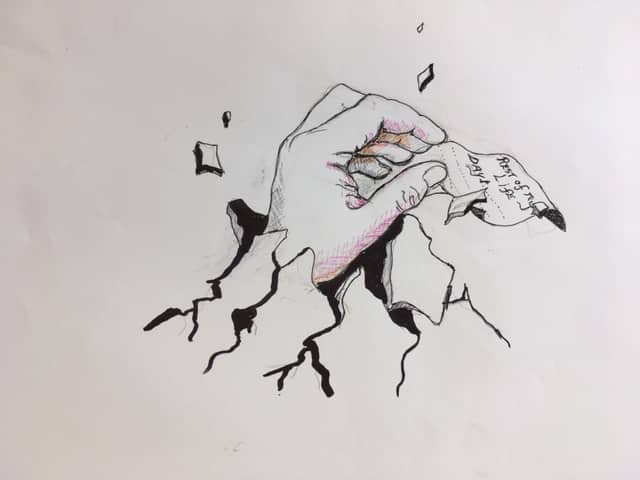
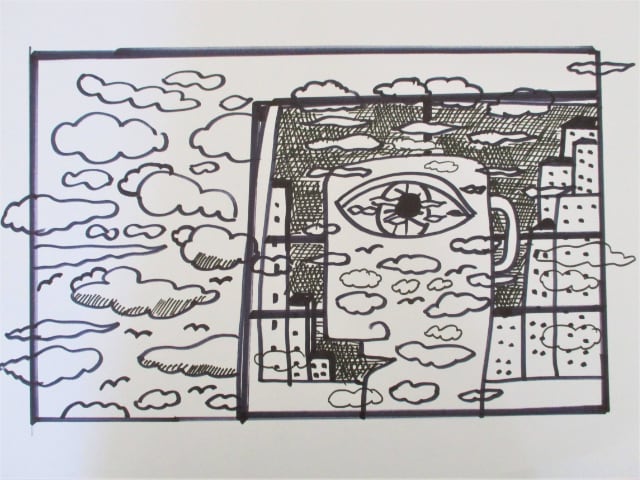
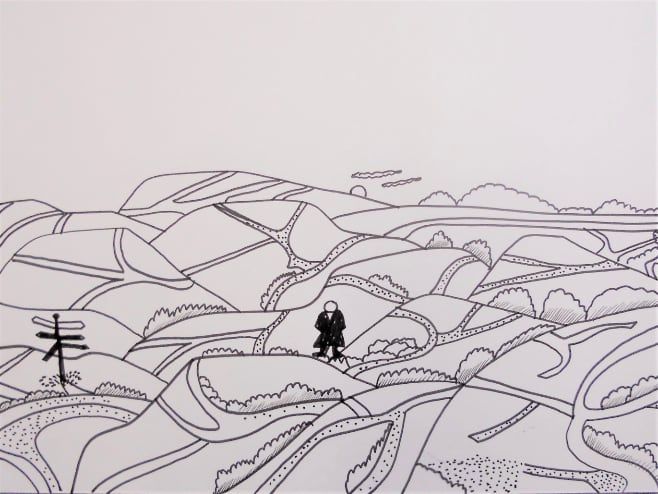
These images were created by veterans during art therapy as part of their recovery journey.
They've been shared to raise awareness and to help others understand.
Initially, you may not be the one to notice changes in your alcohol use - quite often your family, friends or work colleagues might be the first to comment on changes in your drinking, behaviour or personality. Recognising you might have a problem with alcohol is the first and biggest step to getting the help you need.
You may need help if you:
- Have noticed that you are thinking about alcohol most of the time.
- Are making excuses to have a drink and/or drinking in secret.
- Feel like alcohol is controlling you, that you are unable to, or not wanting to stop drinking.
- Are spending more money than you should, or have, on alcohol.
Finding your way to this page demonstrates your desire and motivation to understand and to take the steps necessary to improve your relationship with alcohol.
By following the strategies and tips in these pages you are taking an important first step toward more control.
What is an alcohol unit?
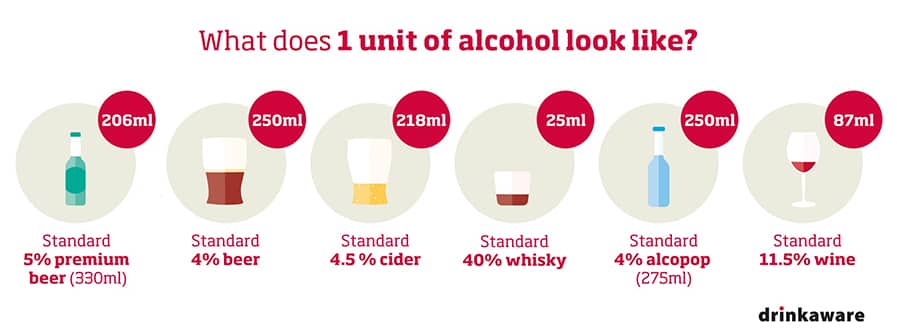
It's important to understand and to be honest with yourself and others about how much alcohol you're drinking in order to take back control. Read on to find out more.
How much is one unit of alcohol?
One unit is 10ml or 8g of pure alcohol. Because alcoholic drinks come in different strengths and sizes, units are a way to tell how strong your drink is.
How to calculate your alcohol units?
STRENGTH (ABV) X VOLUME (ML) DIVIDED BY 1000 = UNITS
Example: 12% x 125ml (wine) divided by 1000 = 1.5
units
Government guidance for the safe intake of alcohol for men and women is to remain under 14 units weekly and have a minimum of three non-alcohol days spaced out during each week. If you're regularly drinking more than this, it's time to take action.
Visit the Drink Aware website to calculate how much you drink.
The difference between addiction and dependence
Veterans often say to us that they've been told they are addicted to alcohol or that they are alcohol dependent. The words addicted and dependent are often used interchangeably; however it's important to note there is an important difference between them.
Alcohol Dependence
This is a physical condition. Those dependent on alcohol will experience symptoms of withdrawal such as: tremors/shakes, sweats, vomiting/nausea. These symptoms may begin as little as a few hours without a drink.
NOTE: Withdrawal symptoms can be dangerous and we would not recommend anyone dependent on alcohol ever stopped abruptly - medical treatment is required. If you have any concerns that you may be dependent on alcohol, consult your GP.
Alcohol Addiction
This is a compulsion to drink, even with full awareness of the potential negative consequences. This is because drink very physically makes you feel good by stimulating dopamine release in the brain.
Why might veterans struggle with alcohol misuse?
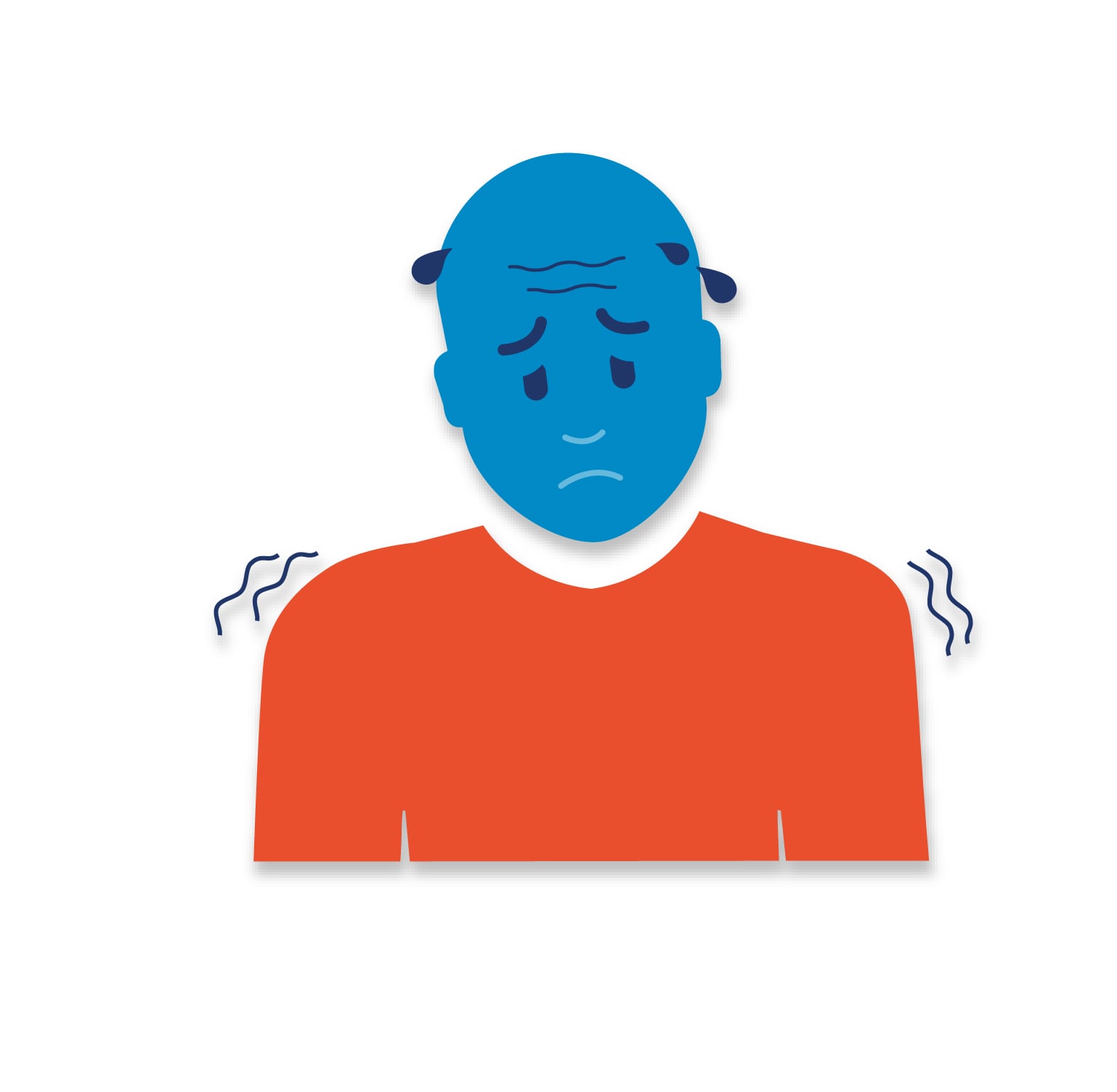
Throughout history alcohol has been a deep-seated part of military culture, creating social bonds between personnel and aiding 'de-compression' after deployment or difficult life events e.g. relationship breakdown or death of a buddy or family member.
The ability to consume large amounts of alcohol and still perform physically the next day is often revered as a sign of masculinity and strength. Therefore, a veteran's view of the threshold for what constitutes problematic drinking may be higher, and it may feel natural to turn to drink at times of emotional pain and to cope with, numb or avoid distressing experiences from the past.
Here are some of the reasons why veterans have told us they reach for alcohol:
- habit from their military background
- problems adjusting to civilian life
- mental health problems
- as a coping mechanism in an attempt to alleviate symptoms and/or mask the triggers of trauma
- to help forget the past and a way to escape troubling thoughts
- to help with sleep
- loneliness
Additional Resources
Was this page useful?
This information was published on 30 October 2020.
Is there someone I can call and talk to?
Our Helpline is open 24/7, please do not hesitate to call if you need someone to talk to or any guidance.
Combat Stress 24/7 Free Helpline 0800 138 1619.
If you require more urgent help, either yourself or a member of your family feel unsafe, please contact your GP or telephone 111.

